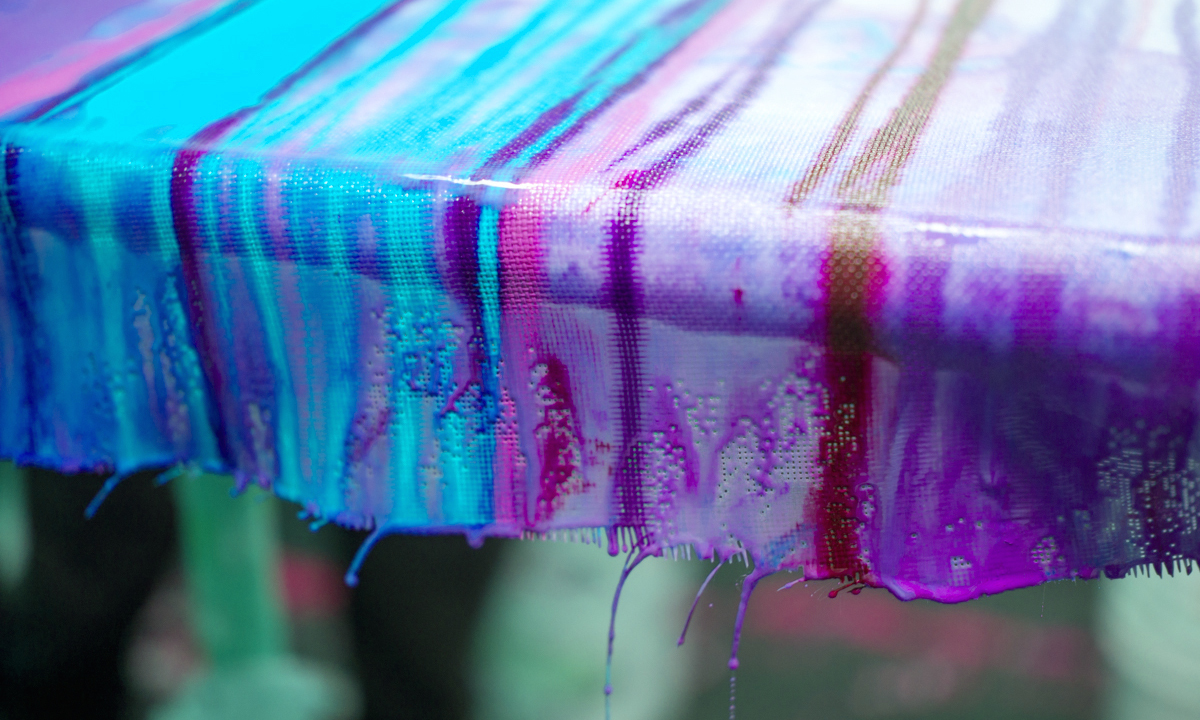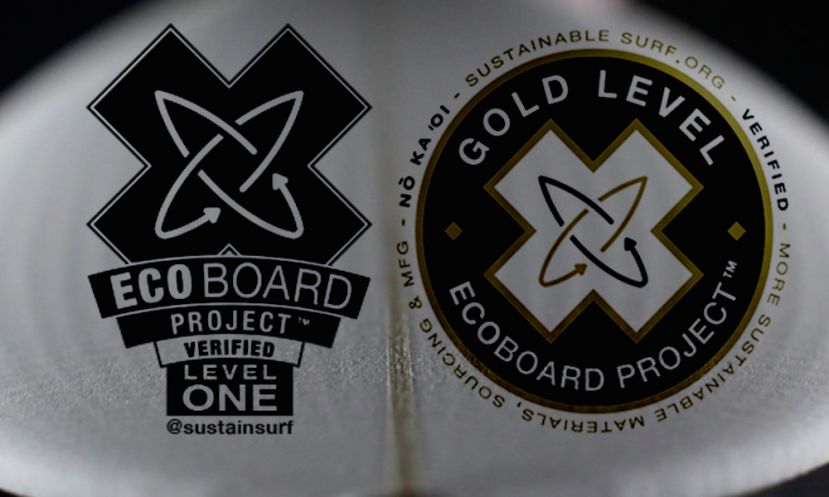Sustainable Surf Launches The Next Evolution Of The ECOBOARD Project
- Written by Staff
- Published in News
- Comments::DISQUS_COMMENTS
SAN DIEGO, California - Non-profit Sustainable Surf announces the next evolution of the ECOBOARD Project, which is the first independent consumer-facing “eco-label” for surfboards. Since the launch of the program in 2012, and the 2013 endorsement by the Surfing Industries Manufacturers Association (SIMA), there has been dramatic growth in the number of ECOBOARDS made by major surfboard manufacturers. During this time period, the performance of ECOBOARDS has been validated by World Tour contest wins under the feet of the world’s elite surfers, and by radical free-surfers on strike missions to remote corners of the planet.
The program will introduce a new designation: Gold Level, which highlights the top-performing sustainable surfboards, board builders and surfboard materials. This new level is informed by the recently completed ECOBOARD lifecycle study, which identifies the most effective strategies to reduce the environmental impact of a surfboard related to the carbon footprint and use of hazardous materials.
The lifecycle study shows that an ECOBOARD can easily achieve a 30% reduction in carbon footprint compared to an industry standard PE/PU surfboard, with an 80% reduction possible in the foreseeable future. The lifecycle study was performed by Pure Strategies, a leading environmental consulting firm, with data collected from participating ECOBOARD Project approved manufacturers including Entropy Resins, Marko Foam, Firewire Surfboards and Channel Islands Surfboards.
Gold Level designated boards require the use of multiple “Qualified Materials” by the ECOBOARD Project, and are made by board builders that are actively evaluating new ways to reduce waste and lower energy use during manufacturing. Gold Level is intended to be a stretch goal for most manufacturers and showcases a significantly more sustainable way to build a surfboard using modern materials and techniques.
The ECOBOARD Project also showcases Gold Level Qualified Materials, which are the highest performing sustainable surfboard materials with environmental benefits as measured by lifecycle analysis. Entropy Resins has been one of those leaders in this field since 2009, when they were the first company to market a plant-based epoxy resin. The first Gold Level qualified materials is Entropy’s Super Sap ONE epoxy resin, as it meets the minimum requirement of having 30% bio-carbon content (for the final cured resin), and the requirement to be certified by the USDA’s Bio-preferred program.
“We’re proud to see Entropy’s Super Sap ONE qualify for the new designation”, says Rey Banatao of Entropy Resins. “Entropy has always been at the forefront of sustainable resin development and we want to see our customers and the entire surf community take the next step in surfboard sustainability. It’s great to see Sustainable Surf rewarding sustainability innovators – and we’re proud to be part of that group and support leading board builders”.
Since 2012, more than 45,000 boards bearing the ECOBOARD Project label have been made by over 40 approved board builders. These boards have the same or better performance characteristics as the typical PE/PU boards that many surfers ride, but have a measurably reduced carbon and toxic chemical footprint. This ultimately benefits the health of our oceans and coral reefs, and improves worker health and safety issues.

The ECOBOARD Level One designation is also available to help any board builder to quickly start making more sustainable boards. This requires the use of only one qualified material by the ECOBOARD Project. The complete list of Qualified Materials is available on the ECOBOARD Project website, and includes resins and cores/blanks from several different manufacturers.
Starting in September 2016, surfers will be able to purchase Gold Level ECOBOARDS from a select number of board builders using Entropy’s SuperSap ONE and other more sustainable materials. These include Firewire’s TimberTek model boards built in their Thailand factory with sustainably-sourced, FSC certified Paulownia wood, recycled EPS boards glassed at Earth Technologies in Los Angeles, and hollow wooden surfboards from Santa Cruz-based Ventana Surfboards made from re-claimed historic and exotic woods.
"We're honored to be one of Sustainable Surf's first ECOBOARD Project partners to be approved to produce the new 'Gold Level' designated ECOBOARDS," said Martijn Stiphout, master craftsman at Ventana Surfboards & Supplies. “Sustainable Surf is helping to keep the ocean clean one surfboard at a time, and we thank them for recognizing Ventana's contribution to the cause – as seen throughout the entire process of what we make, and how we make it."
Much more than just a label, the ECOBOARD Project educates and engages individuals about the environmental impacts of their surfing lifestyle through the lens of their surfboard. The simple act of choosing a more sustainable surfboard can be an “on-ramp” into a dramatically more sustainable, ocean-friendly life.
“We’re super stoked on the support that we’ve been getting from the surf community about this next evolution of the ECOBOARD Project, says Michael Stewart, Co-founder, Sustainable Surf. “Our new Gold Level designation embodies the spirit of the phrase No Ka Oi, Hawaiian for ‘the best’, paying tribute to surfing’s origins, while recognizing the modern day pioneers who are pushing the hardest to shift modern surfboards to embody the inherent values of the truly sustainable surf-craft of the ancients.
Learn more about the ECOBOARD Project HERE.
About Sustainable Surf
Sustainable Surf is a California-based 501(c)(3) non-profit charity organization focused on transforming surf culture into a powerful force for protecting the ocean playground. We take an integrated “systems thinking” approach with our innovative programs and campaigns, which engage both individuals and businesses together in partnership to solve the most pressing environmental issues facing our oceans. Specifically, we focus on addressing environmental impacts such as climate change related impacts (ocean acidification, sea level rise and coastal erosion), marine plastic pollution, and water quality issues that threaten our shared “surfing habitat.” - See more HERE.

Staff
Submit your news, events, and all SUP info, so we can keep promoting and driving the great lifestyle of stand up paddling, building its community, and introducing people to healthier living.
Website: supconnect.com Email This email address is being protected from spambots. You need JavaScript enabled to view it.Related items
-
 ISA Crowns Gold for SUP Surf & Technical Racing
ISA Crowns Gold for SUP Surf & Technical Racing
-
 2025 ISA World SUP Championship Opens in Surf City El Salvador
2025 ISA World SUP Championship Opens in Surf City El Salvador
-
 Gran Canaria Pro-Am Returns to Crown SUP Surfing World Champions
Gran Canaria Pro-Am Returns to Crown SUP Surfing World Champions
-
 New Life Jacket Regulations: What Paddleboarders Need to Know
New Life Jacket Regulations: What Paddleboarders Need to Know
-
 Paddle for Mothers: Compete for Causes Launches Challenge to Aid Homeless Moms
Paddle for Mothers: Compete for Causes Launches Challenge to Aid Homeless Moms

